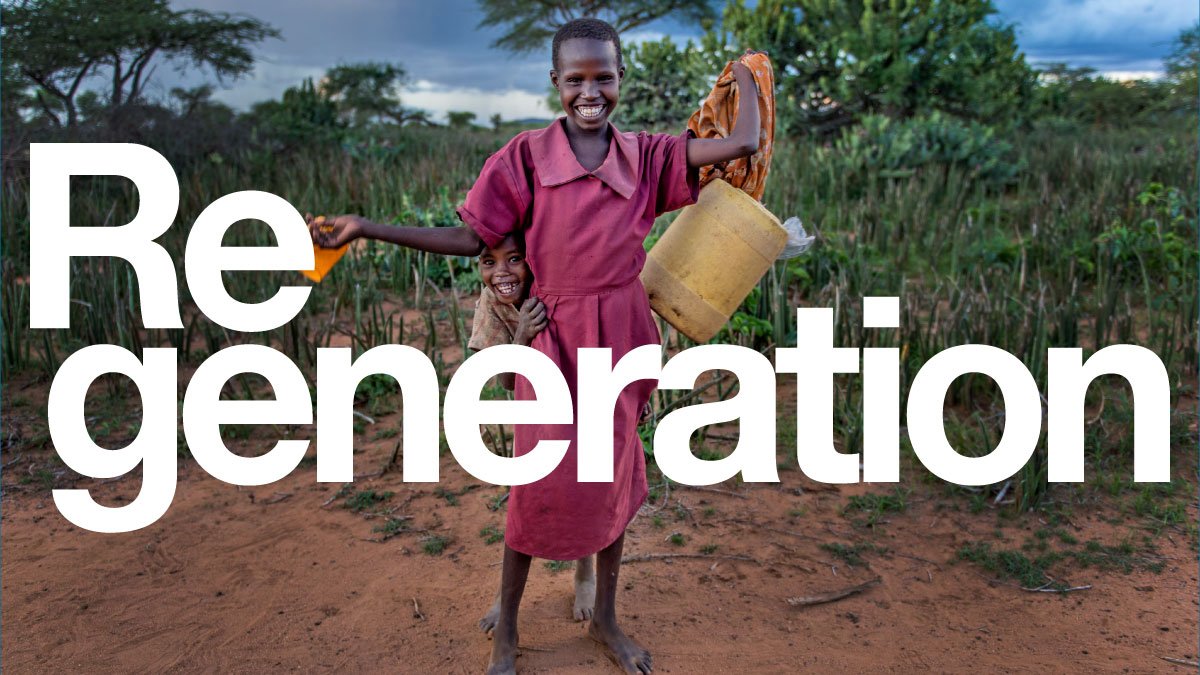Let's talk about climate!
5 Tips for Having Successful Climate Conversations with Family and Friends
We need to talk more about climate change, period. Katharine Hayhoe argues that it could be the most important climate action of them all because the more we can normalize these conversations, the faster we can invite everyone onboard!
The Holiday season brings many great opportunities for starting conversations and here are a few tips on how to do so in a successful way. Talking about climate change can be hard — it’s a bit of a tricky territory! Something said with good intent can easily trigger both overwhelm and denial. However, if you come at it the right way, you may very well find yourself a new climate ally!
Photo: Markus Spiske
1) Lead with questions and find common grounds
When we want to really push a message, it’s easy to come off as a bit too… excited. We feel like we’ve learned something the whole world needs to know about and forget that the people we’re talking to are yet to share your excitement (or worry). This can backfire. If you start a conversation by trying to convince the person you’re talking to that what you’re saying is important, you run a risk of losing her early on.
When it comes to climate change, things get even trickier! For this topic, we carry a lot of already established fear, shame, and denial. We’re used to associating climate change with an attack on our personal lifestyles and behaviors, and if you’re not careful, you can launch the receiver right into a predisposition defense!
You avoid this best by leading with questions. This way you open up to curiosity and an even “playing field”. Ask the person what she thinks about ______(wildfires, flooding, the fact that your local river is getting polluted, or something else climate-related) and genuinely listen to her response. Pay attention to what she’s saying and try to find common grounds — something you both care about — and build off that! If the person feels listened to and understood, and if she recognizes that you care about the same things, she will be much more likely to hear what you have to say.
2) Talk local
Just as finding common ground is an important foundation for successfully engaging someone, so is talking about something that the person can relate to. In climate conversation, this is even more important than you might think!
For most of us, climate change doesn’t feel like a personal threat. Sure, we all think it’s sad that polar bears are starving and that people in other parts of the world are losing their homes. Of course we care! But it doesn’t matter how much we care. In order to activate someone, it needs to feel relevant and close to home!
One of Per Espen Stoknes's 5 D’s (barriers for climate action) is Distance. That means that we feel like climate change is both geographically and socially distant to us. It will happen in the future, not right now. It is something that affects people in other countries, not us. This perceived distance prohibits the psychological urgency of getting to action.
By talking about how climate change is affecting your local area, you are much more likely to gauge interest in the people around you. And (un)fortunately, finding examples of how our warming climate is affecting life where you live is not hard! All it takes are a few minutes on Google and you have yourself a conversation starter.
Photo: USGS
3) Don’t shame!
Maybe it goes without saying but shaming people is not going to make them care more. Yet, that’s how we often go about educating people on climate change! (I know it doesn’t work, because I’ve been there many times…)
“Don’t you know that driving so much is terrible for the planet?”
“How can you buy yogurt when it comes in plastic?”
“You’re gonna order a steak, really? Don’t you know anything about deforestation in the Amazon?”
You know as well as I do that these are all solid claims, but I’m also sure you know that they have little chance of actually converting someone as a climate ally. If you attack a person, they usually don’t embrace your attack with open arms — they jump into defense! So sure, you might get your point across and get noticed as an obnoxious “eco-hero”, but rest assured you’re not tuning many hearts.
So try to avoid using framing that might lead to denial or the need to protect oneself. If you tell someone off by pointing out how bad their behavior is for the environment, chances are they’ll only look for excuses as to why changing their ways won’t matter. (Even if they don’t say it to your face, they surely will argue it to themselves later on!)
Instead, you can say something like this:
“You know, I learned that one garbage truckload of plastic is dumped into the ocean every minute, isn’t that crazy?! I decided to get a reusable water bottle and I feel like a hero every day now, not having to buy a disposable bottle out. You should get one too!”
Photo: USGS
4) Use story-telling over numbers
As humans, we’re natural storytellers, that’s how we’ve been passing on ideas and values for eons! We also make a lot of our decisions based on our emotions, so if you want to spark action in someone, go for the heart!
Loading someone up with facts and figures might feel like a powerful case, but remember that it feels that way for you because your emotional side has already been activated. Once you care passionately about a subject, finding facts to back your beliefs will make it seem like a bulletproof case. But for someone who’s yet to “get it”, facts and figures are hard to relate to.
If you want to get someone to care, talk about people over numbers. Instead of talking PPMs and GHGs, find a story about someone who’s affected by climate change right now (preferably someone local to the person you’re talking to) and use that story to start a conversation. Once someone is genuinely engaged in the topic, then you can use the numbers to hone in your point!
5) Talk about solutions
More awareness does not spark more action. In fact, studies have shown that the more people learn about climate change, the less they tend to do anything about it. Why that’s the case is for a different conversation, but if you think about it, it makes a lot of sense — unless we know what to do, no awareness in the world will make us do it!
So that brings me to the obvious — we need to talk about solutions! And there are many of them, thankfully! Last week I shared four big climate solutions categories to get people excited about. I also recommend checking out Regeneration.org - “The world’s largest, most complete listing and network of solutions to the climate crisis. And how to do them!”
Photo: Regeneration.org
I hope these tips are helpful and I would love to hear about how your climate conversations go — leave a comment below!







